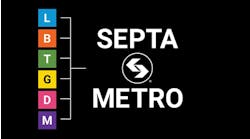Siscog won a new international client: Via Rail Canada.
The trains that run on the 12,500 kilometres rail network used by Via Rail, going from the Atlantic to the Pacific across 5 time zones, will be optimised with the technology company’s optimisation solutions “Ontime” and “Fleet.”
In addition to the generation of timetables and the planning of the use of rolling stock (locomotives and cars), Siscog’s solution also allows for the creation of special timetables or the adjustment of service for unexpected events. The timetable and the fleet plan, which are both optimised, are designed taking into account the forecasted demand, network and vehicle availability and Via Rail’s own strategic goals.
João Pavão Martins, Siscog’s CEO and founding partner, states that, “this contract is an important milestone as it represents the sale of two new and integrated products to a new railway client. It is with great enthusiasm that we embrace this new project with Via Rail, considered by Canadians as a reliable national company and that transports nearly four million passengers annually.” Siscog has already clients in six north European countries and the new client in the American continent is considered relevant to gain other clients in this geographic area, one of Siscog’s goals.
The contract was signed as a result of Siscog’s participation in an international public tender in 2014. Following the proposal, an intensive evaluation and negotiation phase took place, including the development of a prototype. Siscog was the winning tenderer due to the quality and optimisation capabilities of its products. Via Rail’s goal when issuing this tender was to decrease operation costs while increasing frequency and seat availability to passengers. With the new system, Via Rail will have permanent access to several key performance indicators, such as fuel consumption, the time a train is immobilised or the personnel needed to operate the train, as well as the possibility of making simulations towards the definition of the ideal capacity that maximizes profit through efficient operation and optimal ticket pricing.
The system will be fully operational by the summer of 2016. Three implementation phases will occur until then, the first of which occurred at the end of 2015. All phases include training and user support, in person or remotely through telephone or Internet. After implementation, a maintenance contract will enter into effect which will contribute to the organic growth of Siscog’s client portfolio and turnover.



